
Count Lajos Batthyány de Németújvár was the first Prime Minister of Hungary. He was born in Pozsony on 10 February 1807, and was executed by firing squad in Pest on 6 October 1849, the same day as the 13 Martyrs of Arad.

László Garai was a scholar of psychology: studies theoretical psychology, social psychology and economic psychology.
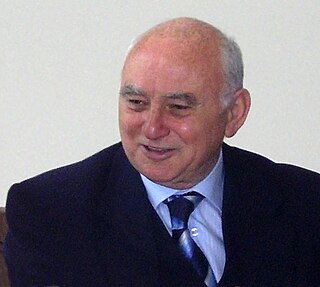
Ferenc Glatz is a Hungarian historian and academician. He has served three terms as the president of the Hungarian Academy of Sciences.

György Szabad was a Hungarian politician and historian, founder member of the Hungarian Democratic Forum (MDF). He was the Speaker of the National Assembly of Hungary between 1990 and 1994. He was a member of the Batthyány Society of Professors.
György Györffy was a Hungarian historian, and member of the Hungarian Academy of Sciences.

József Hámori was a Hungarian biologist and politician, who served as Minister of Culture between 1998 and 1999. He was a member of the Batthyány Society of Professors.

András Bozóki is a Hungarian sociologist and politician. He served as Minister of Culture between 2005 and 2006. He is professor of political science at Central European University.
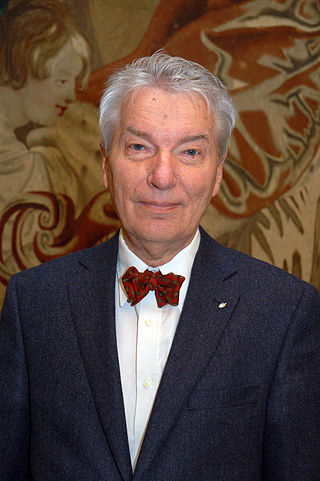
Szilveszter E. Vizi is a Hungarian physician, neuroscientist, pharmacologist and university professor who served as President of the Hungarian Academy of Sciences between 2002 and 2008. He issues some of his papers under the name E. S. Vizi or E. Sylvester Vizi.

Lajos Mocsai is a former Hungarian international handball player, coach, university professor and sports director.

Peter Csermely is a Hungarian biochemist and professor at Semmelweis University. His major fields of study are the adaptation and learning of complex networks. In 1995 Csermely launched a highly successful initiative, which provided research opportunities for more than 10,000 gifted high school students. In 2006 he established the Hungarian Talent Support Council. From 2009 the council built up a nationwide talent support network involving more than 200,000 people by 2018. Between 2012 and 2020 he was the president of the European Council for High Ability. From 2014 they started to establish a European Talent Support Network having more than 400 cooperating organizations from more than 50 countries of Europe and from other continents in 2020.

István Stumpf is a Hungarian lawyer, political scientist, sociologist, university professor, political science PhD, former constitutional justice at the Constitutional Court of Hungary. From 1991 to 1994 he was the youth policy adviser to the president of Hungary, Árpád Göncz. He also served as minister of the Prime Minister's Office from 1998 - 2002 in the first cabinet of Viktor Orbán. In the beginning of 2021 February he was appointed for a term of 2 years as government commissioner responsible for model change of universities.

The Pál Schmitt academic misconduct scandal refers to allegations of plagiarism concerning the 1992 doctoral thesis and the circumstances of the doctoral defence of the President of Hungary Pál Schmitt, which led to Schmitt's resignation from his presidential post. The scandal broke in January 2012, when Hungarian news organizations published a number of articles claiming that about 197 pages of Schmitt's 215-page thesis had been lifted from works by other, foreign scholars, without giving appropriate credit.
Prof. László Iván was a Hungarian psychiatrist, neurologist, geriatrician, academic and politician who was a member of the National Assembly (MP) from Fidesz Borsod-Abaúj-Zemplén County Regional List from 2010 to 2014. He was also Member of Parliament from Fidesz National List between 2006 and 2010.
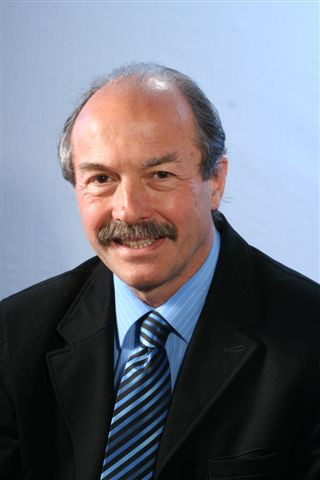
György Kéri was a Hungarian biochemist, professor and Doctor of Biological Sciences (D.Sc.). His major field of research was signal transduction therapy and he participated in the development of novel drug discovery technologies and drug candidates that entered the clinical development process.
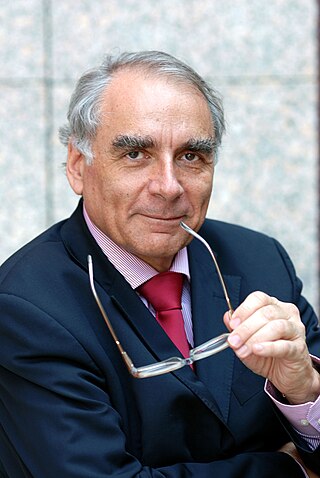
Tibor Frank was a Hungarian historian who was professor of history at the School of English and American Studies of the Faculty of Humanities of the Eötvös Loránd University (ELTE). He was director of its School of English and American Studies. From 2013 he was corresponding member of the Hungarian Academy of Sciences (MTA), as of 2019 he was a full member.
Lajos Kemény is a Hungarian dermatologist, venereologist, allergologist, medical researcher, full professor and the Head of the Department of Dermatology and Allergology, the director of the Albert Szent-Györgyi Health Center, Faculty of Medicine, University of Szeged and the Vice-Rector for Science, Research Development and Innovation. He is a notable and respected scientist both in Hungary and around the world.

Miklós Kásler is a Hungarian oncologist, professor, director of the National Institute of Oncology, and Minister of Human Resources from 2018 to 2022.

Judith Forrai is a Hungarian historian of science, medical historian, dentist, professor, doctor of the Hungarian Academy of Sciences, and editor-in-chief of Kaleidoscope, a cultural, scientific and medical history journal.
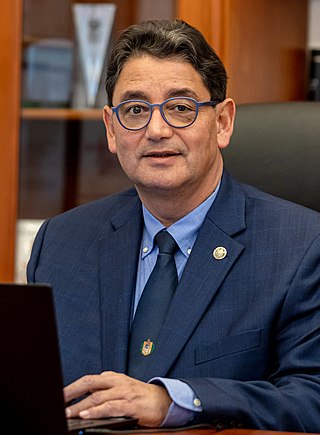
Dr. Béla Merkely is a Hungarian interventional cardiologist and sports cardiologist, a university professor, director of Semmelweis University's Heart and Vascular Centre and the current rector of Semmelweis University since 1 July 2018.

Péter Gaszner was a Hungarian psychiatrist, chief physician of the National Institute of Psychiatry and Neurology in Hungary, and professor of the Semmelweis University in Budapest.

















